Please Select


According to the National Institute of Health, “Scientists increasingly view mental illnesses as developmental disorders that have their roots in the processes involved in how the brain matures.”
How your brain matures can be affected by a myriad of factors and these factors differ in importance as we age. Take a look at the important elements in developing a healthy brain for each age group.



 |
The first 5 years of childhood are critical in influencing children’s brain development |
 |
Exposure and experience shape their personality, learning ability and development |
 |
In fact, a child’s brain is growing so rapidly that by age 6, it would have reached about 90% of an adult’s brain size |
Foundation to a
healthy brain
healthy brain


Plenty of play-time with diverse activities
Play-time is one of the bigger contributors to a child’s development. Through play, he/she can discover about how the world works, developing social and problem-solving skills.
Play-time is one of the bigger contributors to a child’s development. Through play, he/she can discover about how the world works, developing social and problem-solving skills.

Healthy and nutritious food
A poor diet can detrimentally impact a child’s brain development and nervous system. This may lead to problems like poor health, concentration issues, poor academic results and not being emotionally attuned.
A poor diet can detrimentally impact a child’s brain development and nervous system. This may lead to problems like poor health, concentration issues, poor academic results and not being emotionally attuned.

Physical activity
This develops a child’s motor skills, helping him/her to think better while discovering the world.
This develops a child’s motor skills, helping him/her to think better while discovering the world.

Exercise
Several studies have shown that fit children perform better in cognitive challenges, maintaining attention, coordinating actions, complex thinking and learn faster.
Several studies have shown that fit children perform better in cognitive challenges, maintaining attention, coordinating actions, complex thinking and learn faster.

Environmental stimulus
Environmental exposure enhances connections in the brain, helping children to fine-tune senses like hearing and eyesight.
Environmental exposure enhances connections in the brain, helping children to fine-tune senses like hearing and eyesight.

 |
Brain remodeling phase |
 |
Brain learns to comprehend social situations and how to behave during different contexts |
 |
How teens spend their time will shape their brains in unique ways |
 |
The best time to learn and develop a healthy brain |

Encourage them to find means to express their emotions
Hormonal changes affect their brains and control of emotions.
Hormonal changes affect their brains and control of emotions.

Allow teens to explore healthy activities independently
Fresh experiences give them the opportunity to develop their character and figure out how to handle different social situations.
Fresh experiences give them the opportunity to develop their character and figure out how to handle different social situations.

Discuss decisions, not decide
The thought process of making a decision reinforces their brain’s way of decision-making. A good emphasis would be making decisions based on long-term rewards instead of instant gratification.
The thought process of making a decision reinforces their brain’s way of decision-making. A good emphasis would be making decisions based on long-term rewards instead of instant gratification.

Reward good behaviour
Positive reinforcement works well for teens, reinforcing the pathway for good behaviour in their brain.
Positive reinforcement works well for teens, reinforcing the pathway for good behaviour in their brain.

Portray a good image
Teens will pick up most of their habits from you. How you behave is how they will learn to behave.
Teens will pick up most of their habits from you. How you behave is how they will learn to behave.

Ensure they have sufficient sleep
Studies have found that sleep deprivation can lead to an increase in impulsive behaviour. In fact, a report suggested that lack of sleep could be a factor to delinquency.
Studies have found that sleep deprivation can lead to an increase in impulsive behaviour. In fact, a report suggested that lack of sleep could be a factor to delinquency.

 |
Brain is more capable at controlling impulses and better at reasoning |
 |
Creativity may be at its highest |
 |
Brain develops to be at peak of its ability at about age 22 |
 |
Brain needs to learn to be adaptable to various changes in life |

 |
Ability to read social situation remains strong |
 |
Creativity and conceptual understanding intact |
 |
Brain starts to decrease in size |
 |
Short-term memory loss starts to surface |
 |
Less capable in understanding complex problems |
 |
Memorising skills decrease |
 |
Alzheimer's becomes an increasing risk |

Play a mentally challenging game regularly or learn a new activity
Adults who engage in mentally stimulating activities are 63% less likely to develop dementia according to a study published in New England Journal of Medicine.
Adults who engage in mentally stimulating activities are 63% less likely to develop dementia according to a study published in New England Journal of Medicine.

Hydrate
Your brain is made up of about 75% of water. Drink sufficient water to prevent your brain from dehydrating.
Your brain is made up of about 75% of water. Drink sufficient water to prevent your brain from dehydrating.

Workout regularly
A healthy brain needs a healthy body. New studies suggest that working out encourages brain cell growth, helping to increase mental capability by 20 – 30%.
A healthy brain needs a healthy body. New studies suggest that working out encourages brain cell growth, helping to increase mental capability by 20 – 30%.

Sufficient sleep
To maintain your brain health, ensure you have about 8 hours of sleep.
To maintain your brain health, ensure you have about 8 hours of sleep.
Lastly, an unbiased factor across all ages to maintaining and maximising brain health would be ensuring that the brain has the right amount of nutrients.


Fatty Fish
Contains: DHA, Omega-3, Vitamin D and proteins
Helps: Cognitive development in children, reduce mood swings and delay mental deterioration
Contains: DHA, Omega-3, Vitamin D and proteins
Helps: Cognitive development in children, reduce mood swings and delay mental deterioration

Red Meat
Contains: Acetyl L-Carnitine and proteins
Helps: Aged-related memory loss, better circulation of blood to brain
Contains: Acetyl L-Carnitine and proteins
Helps: Aged-related memory loss, better circulation of blood to brain

Soy Lecithin
Contains: Phosphatidylserine
Helps: Slow down age-related mental decline, improve concentration, relieve stress and promote memory
Contains: Phosphatidylserine
Helps: Slow down age-related mental decline, improve concentration, relieve stress and promote memory

Ginkgo Biloba
Contains: Flavone glycosides and terpene lactones
Helps: Increase concentration, reduce risk of Alzheimer's and dementia, fight free radicals attacking brain cells
Contains: Flavone glycosides and terpene lactones
Helps: Increase concentration, reduce risk of Alzheimer's and dementia, fight free radicals attacking brain cells

However, most of us are unable to maintain a consistent intake of sufficient nutrients and children tend to be picky-eaters.

In this case, supplements are a great alternative to ensuring you and your children’s brains get the nutrients they need.

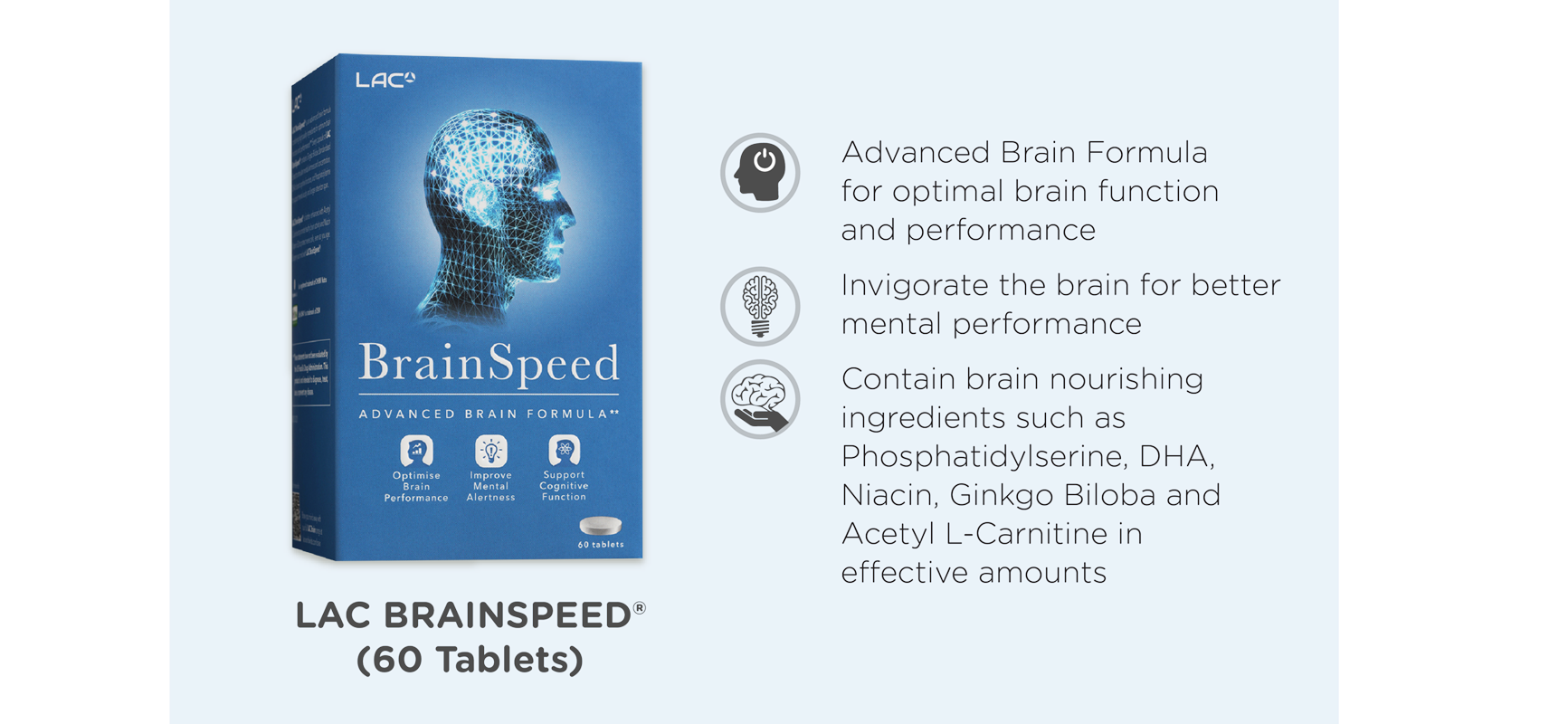
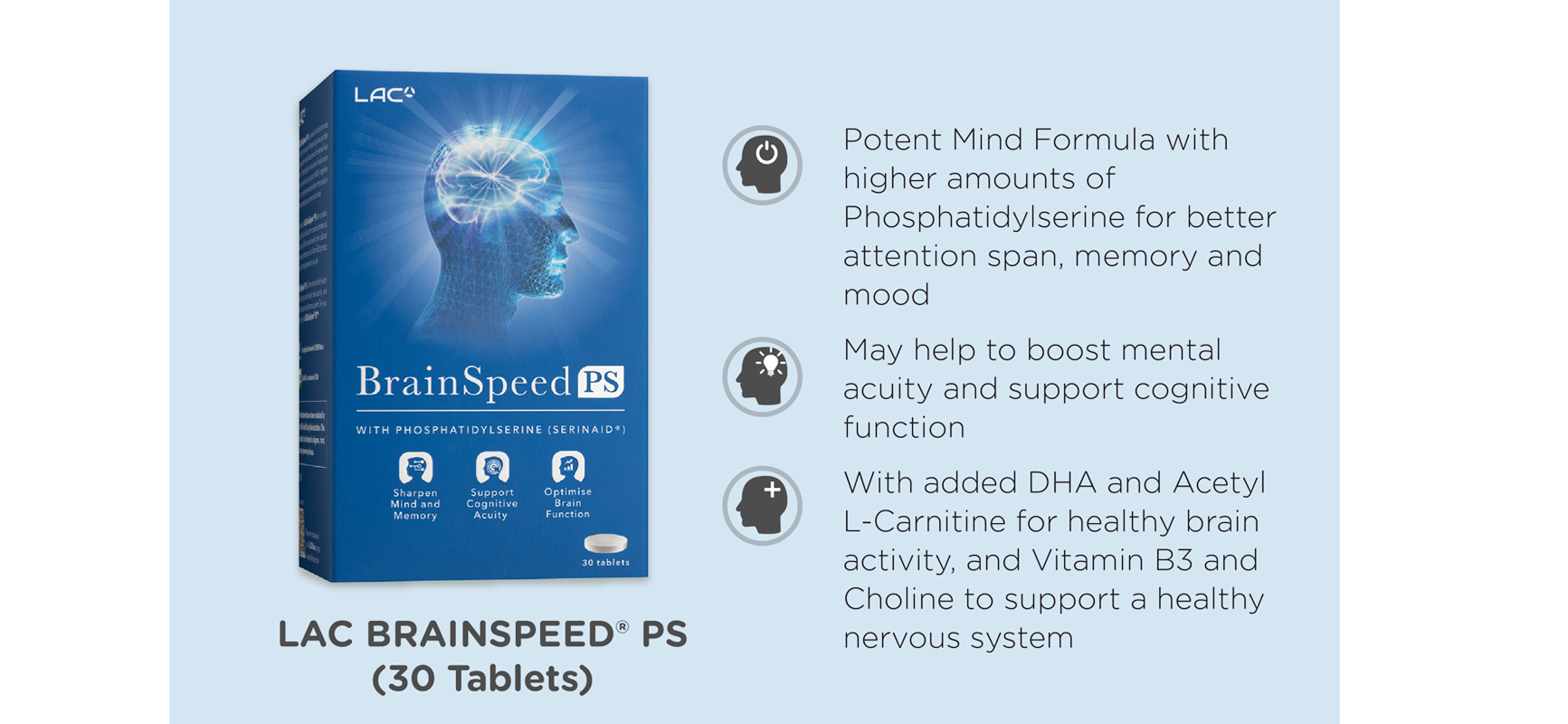
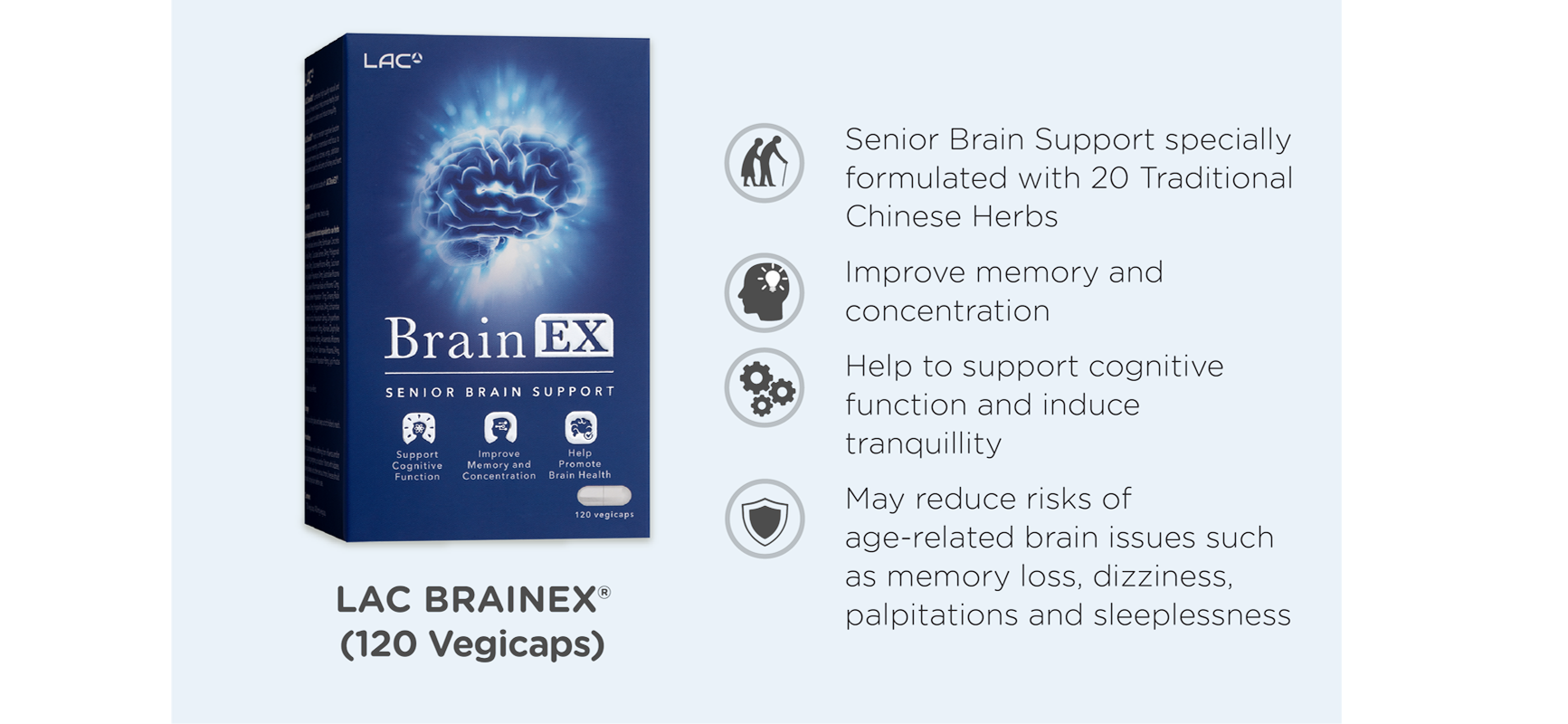
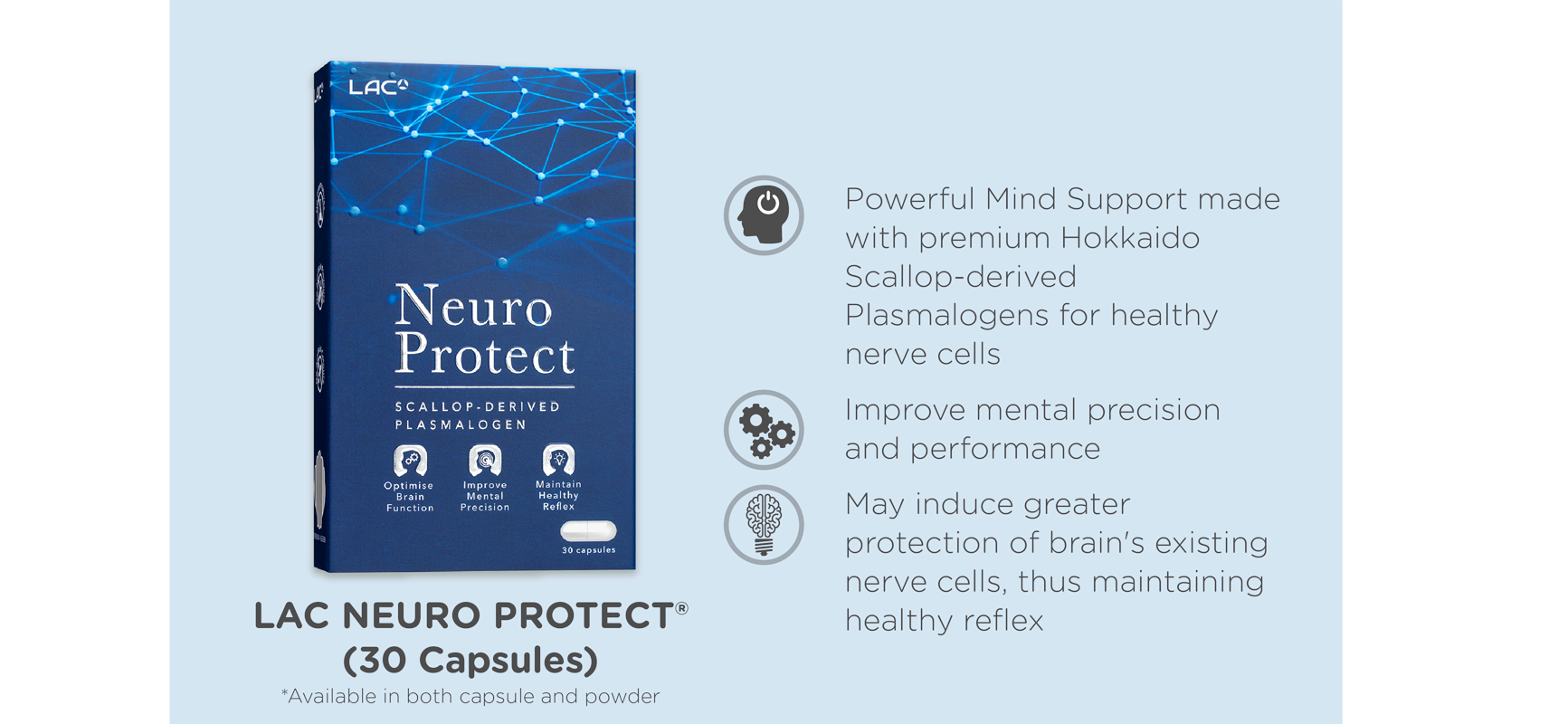
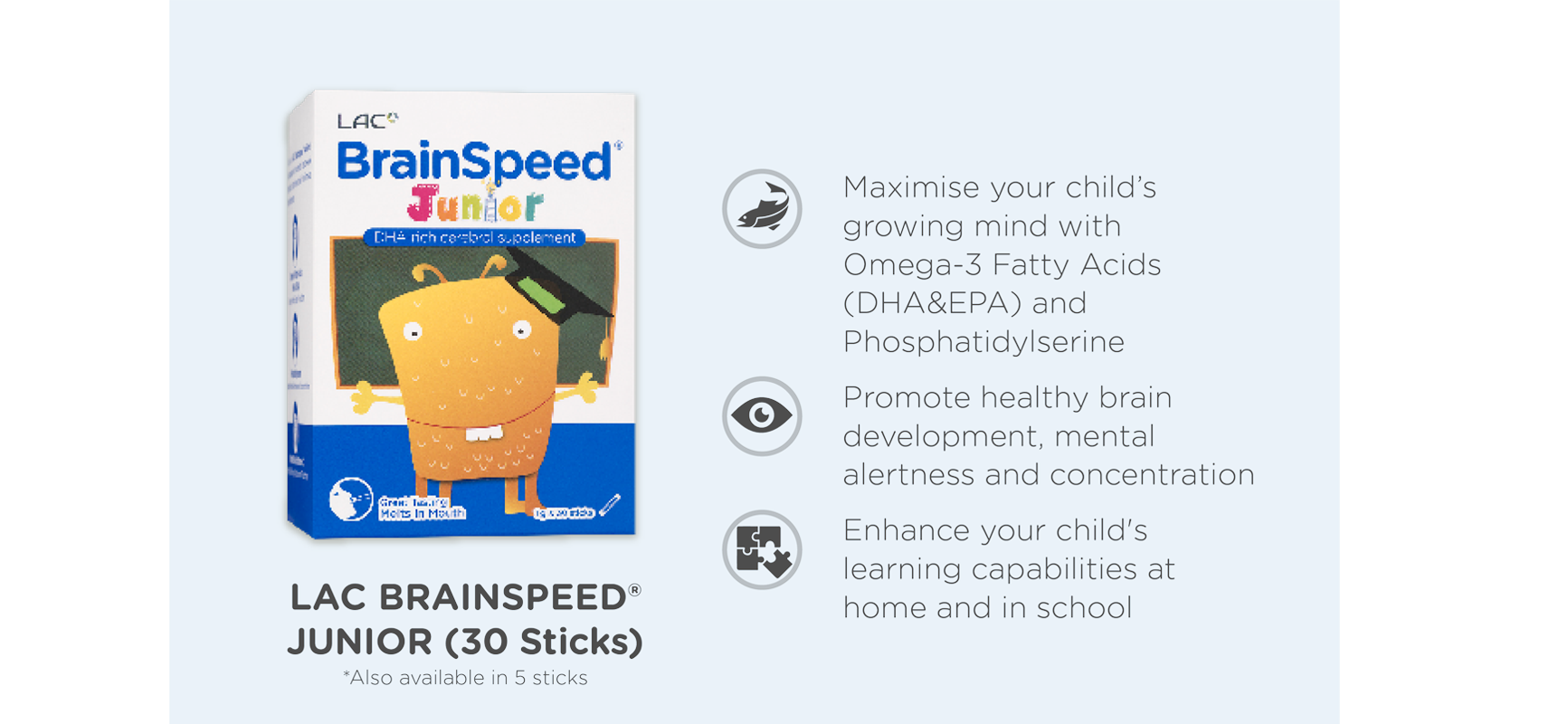
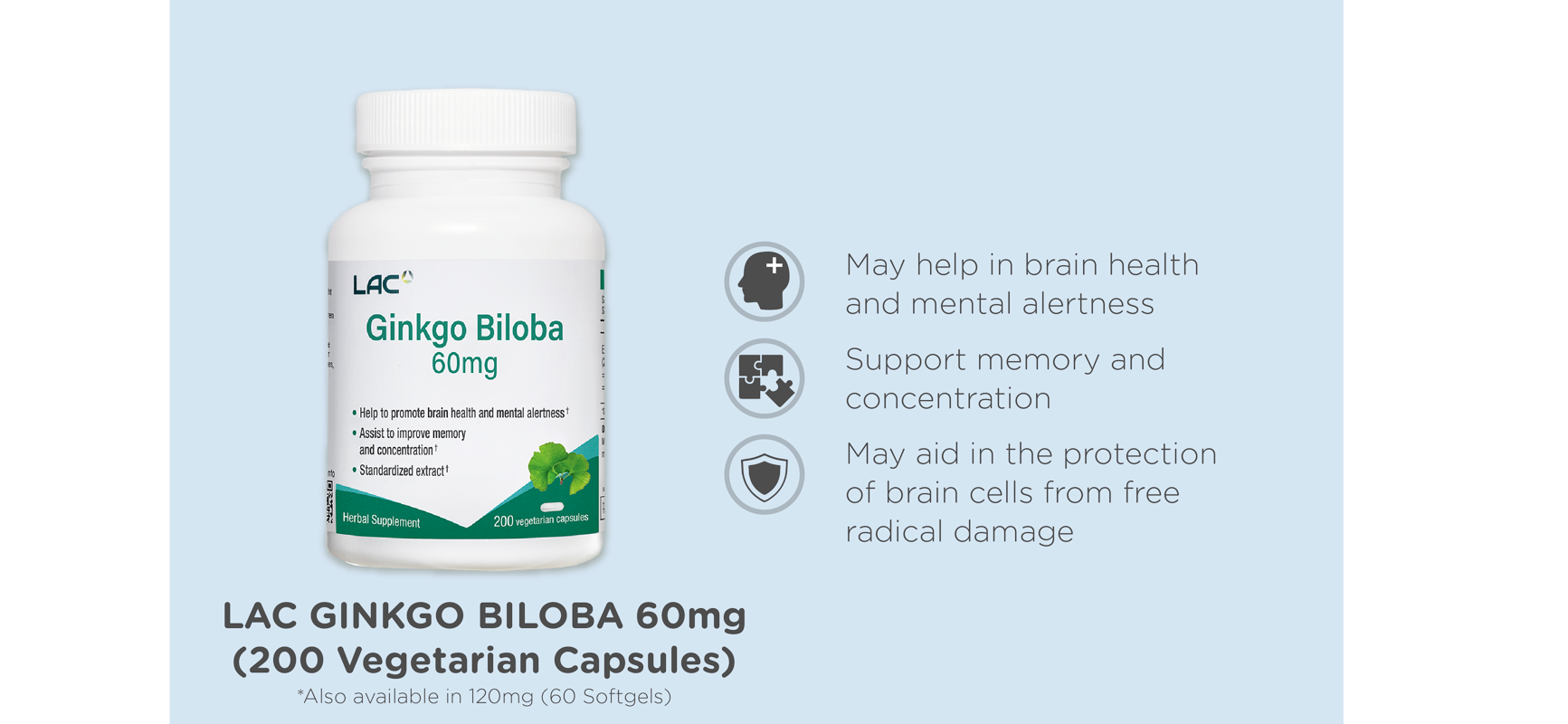
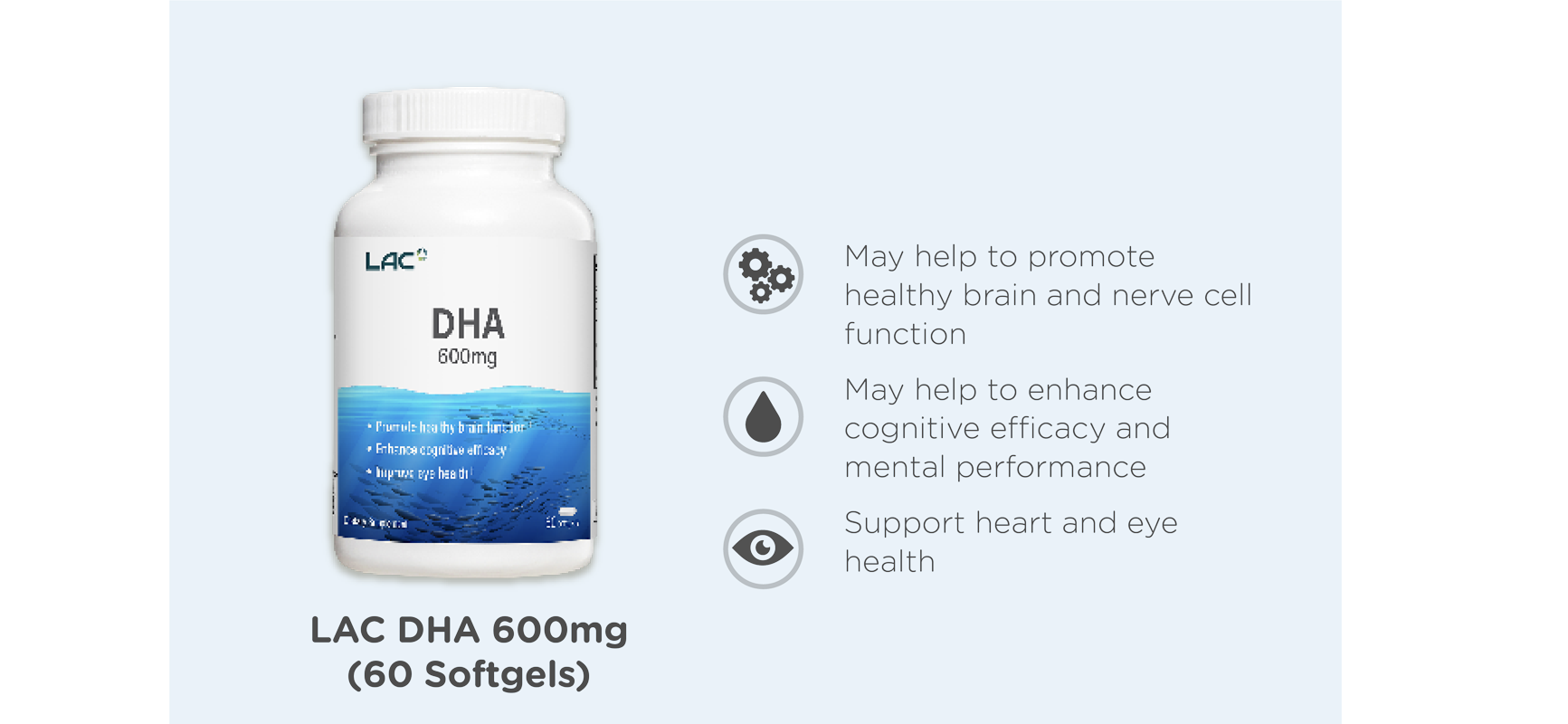

Your brain produces electricity
In fact, it generates enough to light up a 25-watt bulb!

Why you can’t seem to feel the tickle when you do it yourself
A part of our brain (the cerebellum) predicts your movement and the sensation it will give, hence preventing the tickled-response.

The amount of oxygen your brain needs
Your brain needs much more oxygen than your muscles, about 3 times more. Hence, it uses up about 20% of the oxygen in your body.
Your brain needs much more oxygen than your muscles, about 3 times more. Hence, it uses up about 20% of the oxygen in your body.

Your brain and its thoughts
Did you realise that your brain is the only organ that can re-think and contemplate its existence?

More than the human population
The number of neurons in your brain is about 15 times more than the human population. That’s about 100 billion!
The number of neurons in your brain is about 15 times more than the human population. That’s about 100 billion!

Your brain cells differ
There are about 100, 000 different type of brain cells in your brain.
There are about 100, 000 different type of brain cells in your brain.

Big-head babies
Babies’ heads are big to hold their brain as it grows so fast that by 3 years old it is about 80% of an adult brain size.
Babies’ heads are big to hold their brain as it grows so fast that by 3 years old it is about 80% of an adult brain size.

Our brains have shrunk.
Compared to the Neanderthal, our ancestors, our brains are 10% smaller.
Challenge yourself to stay focused!
BLACK
BLUE
GREEN
RED
YELLOW
RED
BLUE
RED
YELLOW
GREEN
BLUE
YELLOW






